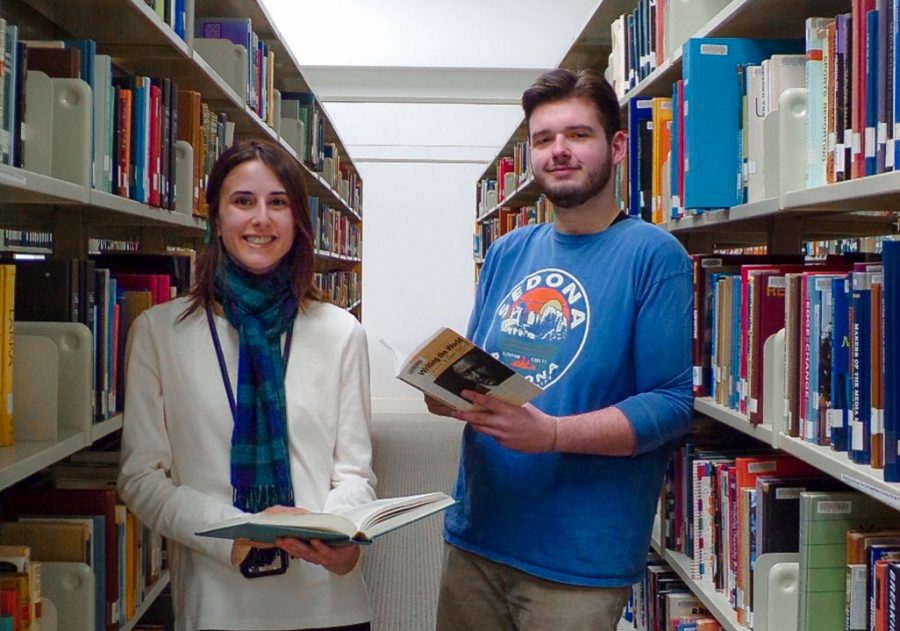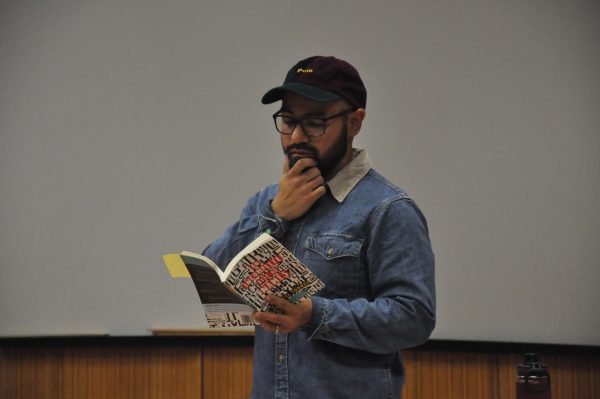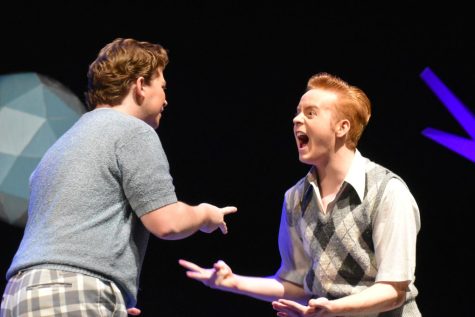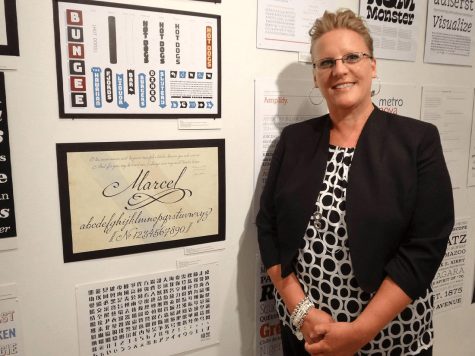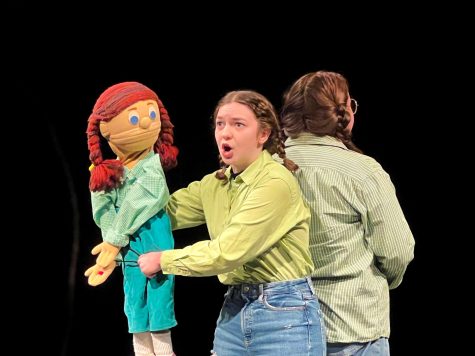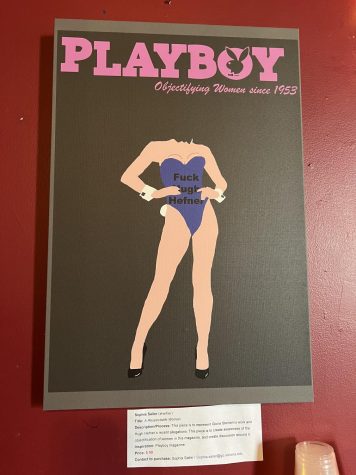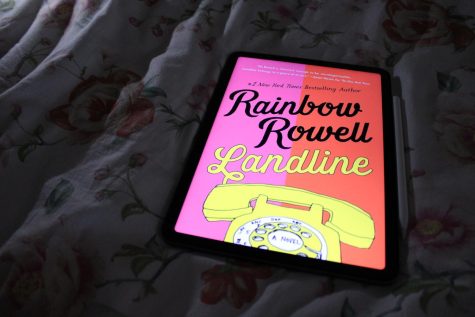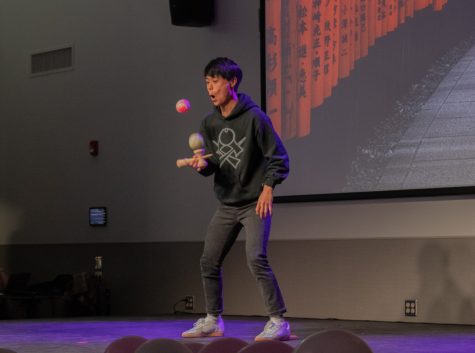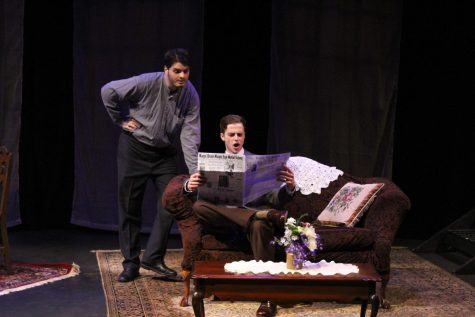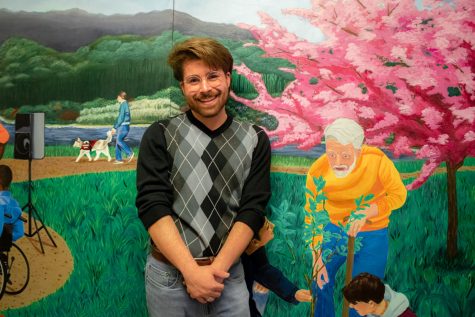Winners of Winona Prize announced
Rachel Drenckhahn and Tyler Janssen were named as prize winners for Winona State University’s annual Creative Writing Competition. Three different categories of fiction, nonfiction and poetry were available for students to compete in. Drenckhahn, a third-year English writing major, won both fiction and poetry while Janssen took the prize for non-fiction.
February 8, 2023
Winners of the English Department’s annual Winona Prize in Creative Writing competition have recently been announced, with Rachel Drenckhahn and Tyler Janssen named as this year’s winners.
The Winona Prize has been a writing competition opportunity at Winona State University since 2016 when the donors, Denis and Dale Duran, established the creative writing contest in memory of their mother, Rosemary Duran, Winona State alum, class of 1944.
This writing competition is open to any Winona State students so long as they have taken at least one creative writing course. The Winona Prize is split into three sections, fiction, nonfiction and poetry, with the first prize winner of each section earning $1,500 for their prized work.
This year, Drenckhahn, a third-year English writing major, won both fiction and poetry. Drenckhahn traced her inspiration for her fiction piece, “Woeful at the Edge of the World”, back to a drive she took through Lake City, Minnesota.
“There was this woman just sitting on her front steps and she was smoking a cigarette and she had this hopeless look on her face, and I thought, ‘What could be the cause for that?’ And so I kind of ran with that idea,” Drenckhan said.
The judge for the fiction section, Maureen Aitken, had a few comments on Drenckhahn’s piece.
“Rachel Drenckhahn’s ‘Woeful at the Edge of the World’ is a haunting, deep story about loss and life thereafter, holding close to moments, ever-present in place and moving forward with compressed and combustible feelings,” Aitken wrote.
Drenckhahn also won the poetry section with her piece “Questions for a Pollinator”. Drenckhahn commented on how she let the poem “write me” and how excited she was seeing all the different directions the poem went.
The judge of this section, Athena Kildegaard, noted Drenckhahn’s use of language and twists that keep the poem interesting stating, “It is challenging to write a poem that is all questions. To pull this off, Drenckhahn uses vivid images, surprising figurative language, word play, and musical elements to keep the language fresh. At the same time the questions twist and turn in new directions. Kudos to this poet for tackling a serious climate issue in a way that’s surprising and compelling. The final question is tough and direct and leaves us with something to ponder.”
Drenckhahn dedicated her success to Dr. Oness, Cumberland and Armstrong, the English department’s creative writing faculty.
“I think they have really given me the tools to improve my writing, and I don’t think I would have gotten chosen for the Winona Prize if it hadn’t been for Dr. Oness and Cumberland and Armstrong,” Drenckhahn said.
The other winner of this year’s competition was Tyler Janssen, English writing major and recent Winona State graduate from Fall 2022. Janssen won the nonfiction category with his piece, “Under the Trees by the Sea”.
Janssen’s piece is a multilayered braided narrative whose plot follows a trip he took to the pacific northwest combined with emotional reflections and flashbacks.
Kent Cowgill, the nonfiction judge, wrote this about Janssen’s work, “Deftly using flashback and disjointed chronology to piece together acute psychological and experiential realities into a coherent, convincing whole, ‘Under the Trees by the Sea’ ends in a grove of ancient redwoods, whose hard-won survival images Janssen’s own.”

Janssen dedicated his success to Cumberland. Janssen commented that he took all of his nonfiction classes with Cumberland and that she really supported and pushed Janssen to make his work the best it could be.
Elizabeth Oness, an English professor who largely manages the Winona Prize, commented that the judges of each section are all experts in the respective genre. Further, judges often return to Winona State in the spring after judging submissions in the fall. Athena Kildegaard, the poetry judge, will be returning in April.
The Winona Prize offers a number of benefits to students, namely, the $1,500 prize that can be majorly impactful for students. Drenckhahn plans to save her competition winnings while Janssen plans to use it to help fund a long hiking trip he is planning to take in April.
Oness, who largely manages the Winona Prize, commented on what previous winners have used their earnings on. One student left the upper midwest for the first time to attend a writing conference at the Provincetown Fine Arts Work Center and another considered buying a Teardrop trailer.
“One of the things that is really fun is that [the Winona Prize] gives students money to go off and do things they feel like doing..,” Oness said. “It gives people a little bit of money to go have a little adventure, which I think is great.”
Another beneficial factor of the Winona Prize is the visibility it provides. Janssen commented on how important just getting your name out there is.
“If [writing] is something that you intend on pursuing the rest of your life, [the Winona Prize] is a good entry point, actually. Like I would recommend freshmen to start submitting freshman year, just get your name in the pile,” Janssen said. “Like because even if you don’t win the Winona Prize, there’s honorary mentions when they send out their press releases… even if you don’t win something, getting your name out there is shockingly effective.”
The runner-ups in each section were also announced along with short comments about their pieces from the judges. Here are the runner-ups in each section along with the name of their work, fiction: Page Sutton “Summertime”, Madi Bonebright “Range 17”, nonfiction: Rachel Crawford Miller “Beauty and the Beebs” and poetry: Louisa Schirmacher “night fall”, Page Sutton “Some Men Are Like Socks”.
Drenckhahn spoke about why she thinks the Winona Prize is important.
“I think the Winona Prize keeps writing alive. I feel very strongly about literature containing the meaning of life…,” Drenckhahn said. “I think this is an opportunity to show campus-wide, this is what students are capable of, this is what English can achieve.”
Drenckhahn and Janssen’s works are not currently available to read but will be later in the semester when they are published in Satori, Winona State University’s annual literary magazine, this coming April.























































